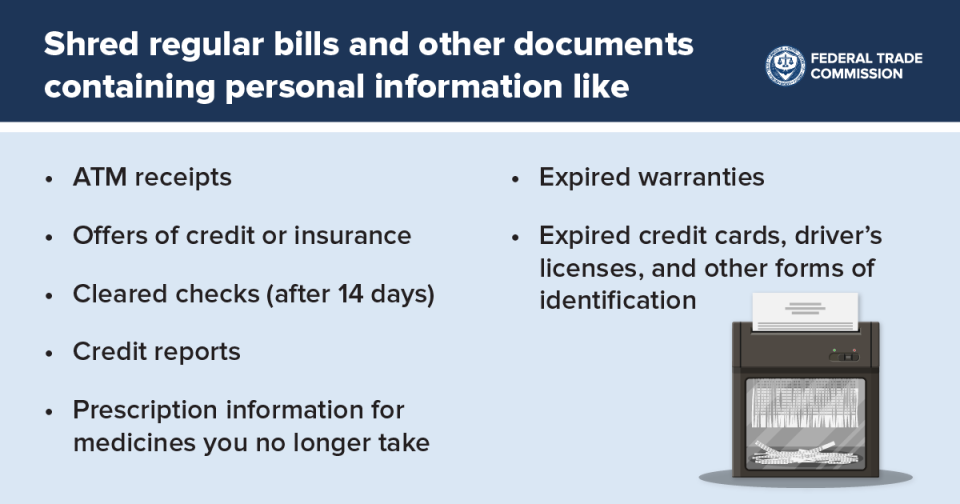When it comes to protecting your identity, you might think about keeping usernames to yourself, using strong passwords, and reviewing your statements. That’s all great. But it’s also important to think about what you do with documents or digital files that contain your financial information. So, let’s look at what you should keep and lock up, and what you should shred or delete.
Keep for a Year
- Bank statements
- Pay stubs
- Undisputed medical bills
- Credit card and utility bills
- Deposited checks
If you can access these documents electronically, consider shredding your paper copies.
Keep for at Least Three Years
- Income tax returns
- Tax-related documents, like canceled checks, receipts, W-2s, and 1099s
- Records related to selling a home
In some cases, the IRS recommends keeping tax returns and tax-related documents for longer than three years. If you can access these documents electronically, consider shredding your paper copies.
Keep While You Own
- The title to your vehicle
- The title or deed to your home
- Documents related to mortgage or vehicle loans
- Home improvement receipts
- Rental agreements and leases
- Sales receipts and warranty information for major appliances
Keep Forever
And lock up:
- Birth certificate or adoption papers
- Social Security cards
- Valid passports and citizenship or residency papers
- Marriage licenses and divorce decrees
- Military records
- Wills, living wills, powers of attorney, and retirement and pension plans
- Death certificates of family members
- Vital health records (especially those that pre-date electronic health records)
Shred
- ATM receipts
- Offers of credit or insurance
- Cleared checks (after 14 days)
- Credit reports
- Prescription information for medicines you no longer take
- Expired warranties
- Expired credit cards, driver’s licenses, and other forms of identification
When it’s time to dispose of documents with your personal or financial information, shred them. If you don’t have a shredder, look for a local shred day in your community.
Find out what else you can do to protect yourself from identity theft.

